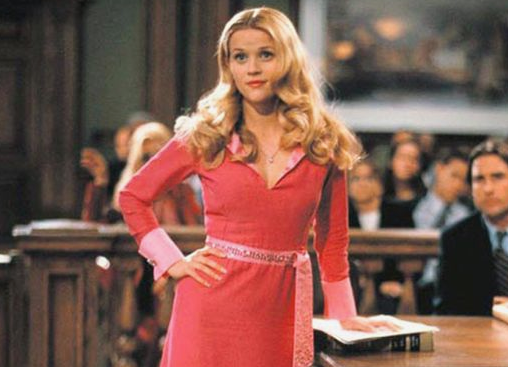I was very interested to read an article on the BBC News website this week which detailed how a female CEO in Silicon Valley ditched her blonde locks and took up wearing glasses and flat shoes in order to be taken more seriously in her work environment.
The woman in question, Eileen Carey, was told that the investors she was pitching to would feel more comfortable dealing with a brunette, rather than a blonde woman.
Let’s go through this logically.
Said woman would be exactly the same person, with the same intelligence, the same education and she would be saying the same thing in the exactly the same voice yet her hair colour dictates the weight with which the words are perceived.
Madness surely?
Yes and no.
It’s madness that the pigment of your hair can have such an impact and yet it does.
In 2004, whilst at university, I did three vacation schemes at various law firms. A vacation scheme is usually a one to three week internship and is widely regarded to be the best route to getting a training contract (which is the two year training period lawyers undergo prior to qualification). In addition to this, I applied for various training contract places direct.
I didn’t get any of them.
The next year I did the same. Though this time something in the back of my mine said you’ll have a better chance as a brunette. So, in preparation, I dyed my hair dark, before doing the internship.
I was offered a training contract.
Now that might have been down to various reasons. I might not have been a sufficiently good candidate the year before. I may have matured a lot in the year in between. I might have gained a better of understanding of what was required by the firms I applied to. The firm I applied to may have been a better fit with me. I cannot be sure, but I do have an underlying niggle at the back of my mind that my newly dark hair, for me, tipped the balance.
How is this even the case?
Stereotypes.
Dumb blonde.
Blonde bimbo.
“If I want to be taken seriously, I need to marry a Jackie, not a Marilyn.” – Warner Huntingdon III, Legally Blonde.
I wonder if it is not television and film that have the biggest part to play in this perception.
Let’s look at Legally Blonde (one of my favourite films) where these two themes intersect.
Thinking about it, it would have been far, far better (but admittedly not as good a storyline) if Elle Woods found a piece of little known legislation that won her client’s case rather than relying on just happening to know that going in the shower after a perm would deactivate the ammonia thioglycolate thus rendering the permee straight haired once again.
Contrary to popular belief, the unwinding of chemical hair processes is not one of the main pillars of law and I do fear the basis of the boost to her legal career may therefore have been slightly misplaced, although her qualities of perseverance and tenacity (which I admire greatly) are spot on.
Now that I’m dwelling on the subject, does that mean she was the only blonde on her course? She must have been because surely then there should have been multiple Elles Woods? Was she the only blonde ever to have studied law at Harvard?
The crux of the film is not only that she’s blonde but that she’s, those terrible unbusinesslike traits, smiley, upbeat, kind and positive. How can you possibly write a computer program, negotiate a contract or lead an audit with a smile on your face? I wonder if she had been more “constipated” like Vivienne I wonder if she would have been deemed as “blonde”. My guess is probably not.
I’m not saying that you need to stern and dour to me taken seriously, I know plenty of people who are neither of these things who are successful in their careers (and plenty of blondes too) but is there a tipping point? What is too blonde? When does it start to impact on your perceived gravitas?
Subconsciously or consciously people change their manner at work to fit in all the time. They may feign interest in their boss’s hobby or fake enthusiasm in teamwork when they really would just prefer to be by themselves doing their job alone. Dyeing hair surely is just another manifestation of this?
Going back to Carey, I don’t for one moment think she’s done the wrong thing. She has done what’s right for her. She has made a choice. It’s her hair, she can do whatever she wants with it.
Yet I can’t help but feel with every concession we make we are reinforcing the stereotype rather than changing it.
By dyeing our hair dark we say, yes, we agree with your misconception.
In fact, we will do nothing to challenge stereotypes or change them unless we push back on them.
Carey acknowledges this herself when she says “Be the change you want to see in the world, which may mean sacrificing your personal life for a discrimination lawsuit. That’s unfortunately how you have to change businesses.”
It seems that she has only half taken her own advice. If the change she wants to see is more female CEOs then she has achieved this. I appreciate that this is presently a male dominated industry and it is is better to have one female CEO that none. But has she done this as herself? Is the change she or we want to see not that people should be accepted for who they are, their achievements and progression based on merit rather than aesthetics? If this is the change she is hoping to see, I don’t think she has but has she opened the door for change to follow? I think she has.
Blonde and intelligence should not be perceived as mutually exclusive attributes. We should not have to wallow in the stereotypes of yesteryear.
Did you know the word bimbo originated in the 1920s and referred to men as well as women? My point being that words and their meanings can change. Words can disappear.
My phase as a brunette only lasted a handful of months. It just wasn’t “me”. I am, at heart, a blonde (and as of yesterday two shades lighter).
I say let’s challenge this view Carey felt compelled to comply with and not feel compelled to change to make others comfortable. Let’s stay blonde, stay smiling and keep doing our jobs well and that is what will help make steps towards changing the stereotype.
After all, in the words of Elle Woods,
“You must always have faith in people. And, most importantly, you must always have faith in yourself.”
Image via Pinterest

